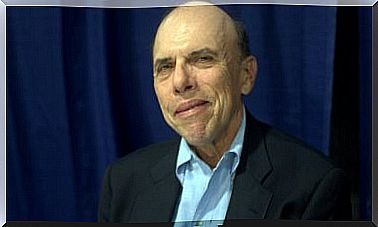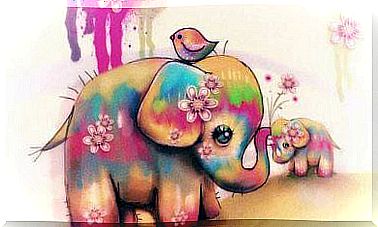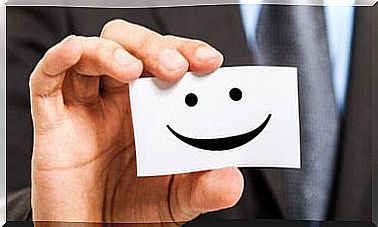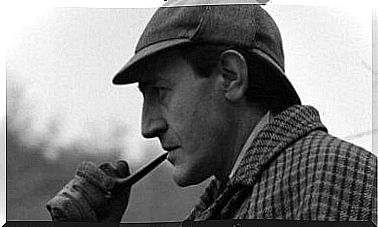Family Invalidation: When We Are Made To Believe We’re Worthless

Family invalidation is a process that occurs quite frequently. It arises in environments where one or several people create a kind of insane dynamic with which they boycott their children’s self-esteem. Disqualification, passive-aggressive communication, emotional manipulation, and invisible mistreatment are used that leave a permanent wound.
Specialists in systemic family therapy say that every disabled child is at risk of becoming an invisible adult in the future. These are people who have been led to believe from a very young age that their needs are unimportant, and what’s more, that their identities have been so diluted that they have barely formed an authentic sense of “I”.
Thus, we could say that we are facing an issue as serious as it is forgotten by a good part of the parents. We will give an example. Ana is 9 years old and spends the day mocking, pinching and pushing her younger sister, Carla. While the former is restless and mocking, the younger is reserved and very shy.
Every time Carla cries and goes to her mother for help, she always answers the same thing: “You need to sort this out, Mom is busy and she can’t always be on top of you.” This situation, which for many may be innocent, hides several dangerous characteristics. The mother’s invalidation in this case is twofold, and the consequences are very serious.
The first, because the mother does not consider her daughter’s emotions as a minor. The second is because the message that is given to this child is very simple and straightforward: “I’m busy, solve this, solve your problems yourself”. As we can intuit, a childhood marked by this kind of crippling dynamic can leave a deep imprint on adulthood.
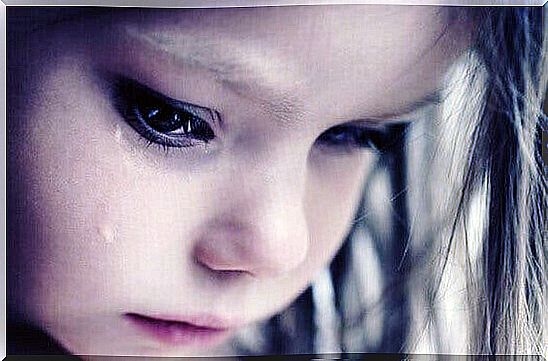
From family invalidation to personal invalidation
Family invalidation is a form of emotional neglect and therefore one of the most dangerous forms of subtle maltreatment. Marsha Linehan, a well-known specialist in mental disorders and dialectical behavior therapy, explains in her work that this type of interaction generates very serious conflicts in the child’s mind.
Take, for example, a baby who was almost never seen at night every time he started to cry. Now imagine this child at two years old, having a terrible tantrum in front of parents who are exasperated because they don’t know how to handle this creature. A few years later, they complain because he still doesn’t know how to tie his shoes, because he’s slow to get dressed, to eat and to express himself… ” You’re silly and you always cry for nothing” are the two phrases this child heard the most during her six years first years of life.
This whole situation will crystallize in the child’s personality in very different ways. For example, Dr. Linehan explains that family invalidation generates, sooner or later, personal invalidation. If from the beginning the child’s emotional needs were ignored and he was rated as a child who “always cries for nothing”, sooner or later he will end up invalidating himself by interpreting that emotions are negative, that it is better to hide them, swallow them them by force.
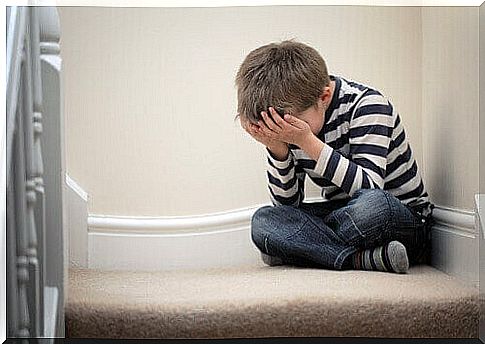
Still and no less important, what also happens in many cases is self-fulfilling prophecy. If we hear from childhood that we are not going to get anywhere, that this is not for us, that that dream is impossible, that in sharing talents we get the worst part, it is very likely that we will end up internalizing it all like a poisonous mantra.
Validating ourselves into adulthood: the inner dialogue
Family and systemic therapies owe much to Paul Watzlawick’s theory of human communication. Both he and other experts at the “Mental Research Institute” shaped an exceptional focus that was key to the future of family therapy and better understanding of these complex dynamics.
Within this framework, for example, reference was made to disqualification techniques, a type of empty, harmful and sometimes even aggressive communication, where the message sent to the other contributes to invalidate them and generate discomfort. Now, something that psychologists were able to prove, like Dr. Lineham, is that the child who was disqualified/invalidated in childhood creates an internal dialogue in adulthood also based on the disqualification itself.
Processes such as self-criticism, limiting attitudes, indecision, guilt, constant fear and a reiterative monologue where there is no self-love, contribute to perpetuating disqualification, almost like a friendly fire with which we destroy ourselves even more…

Not worth it. If in the past it was others who, with their style of upbringing, education and communication, caused all this damage to our identity and self-esteem, let us not be heirs of this dynamic, let us not be our own enemies.
It is possible to validate ourselves, but for that, we need to change our internal dialogue. We must speak to ourselves with respect and kindness, treat ourselves as valuable beings, people who still have a lot to do and who are tired of the title of “you can’t, you don’t know or you don’t deserve ”…
Now is your time to handle it all!

